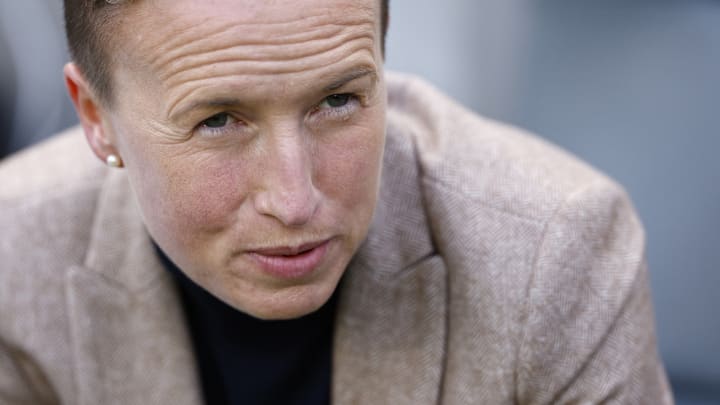Canadian women's soccer is now under a dark cloud of espionage and deceit. Recent events at the 2024 Olympic Games in Paris exposed a practice many thought was straight out of a spy movie: using drones to spy on opponents. And, believe it or not, U.S. Soccer had known about this for years but kept it under wraps.
The Canadians shocked the world with their unorthodox espionage practices. It all started unraveling last week when the Canadian women's soccer team was caught using a drone to spy on training sessions in Paris. This episode led to a six-point deduction in the group stage and a one-year suspension for coach Bev Priestman.
Follow MLS Multiplex on X (Twitter).
But this story isn't new. The U.S. Soccer Federation had been aware of Canada's espionage tactics for some time. And we're not talking about one or two isolated incidents. There were numerous times when U.S. Soccer officials caught someone spying on training sessions, from 2021, when a man was spotted watching a closed training session of the men's team at IMG Academy in Florida, to more recent incidents in Paris. And, to everyone's surprise, this spy admitted to working for the Canadian Soccer Federation. The most shocking part? U.S. Soccer never reported these events to the proper authorities.
This deliberate omission can be explained by larger projects underway, like the joint bid by the U.S., Canada, and Mexico for the 2026 World Cup.
But what drives a team, which won gold at the Tokyo Olympics in 2021 and struggled to qualify for the 2022 Women's World Cup, to resort to such dirty methods? The answer might lie in the relentless pressure for results and the desperate attempt to maintain dominance.
The latest episode in Paris, where a Canadian official was caught using a drone to spy on New Zealand's practice, was the last straw. This official was detained by French police and deported, along with Priestman and another assistant. The coach, in a bid to contain the damage, imposed a one-game suspension on herself before being sent home. Now, it's up to assistant coach Andy Spence to lead Canada for the rest of the Olympics.
This isn't the first time Canada has been involved in sports espionage. Reports indicate this practice has been going on for years, from the Tokyo Games to the attempts to qualify for the World Cup. And it’s not limited to women's soccer. The Canadian men's team was also accused of flying a drone over a training session of Honduras and attempting the same before this year's Copa America.
The damage is done. Trust between teams has been broken, and the reputation of Canadian soccer is in tatters. The question now is: how to restore integrity and fair play? The sanctions imposed are a start, but more is needed. Transparency and honesty must be the pillars going forward. And, of course, U.S. Soccer needs to reassess its priorities. Grand projects are important, but sports ethics cannot be neglected.
The Canadian women's team faces France, with a huge weight on their shoulders. It will be a trial by fire, not just for their on-field skills but for their morality.
